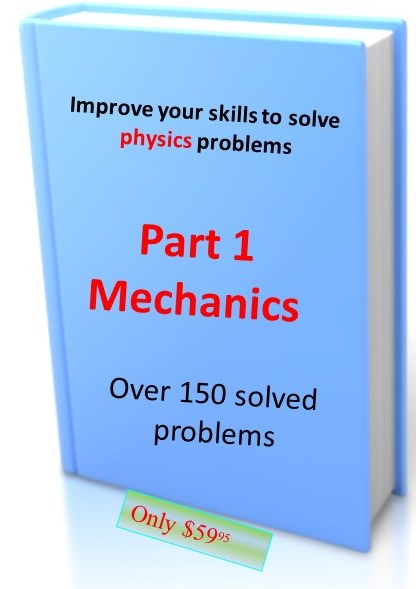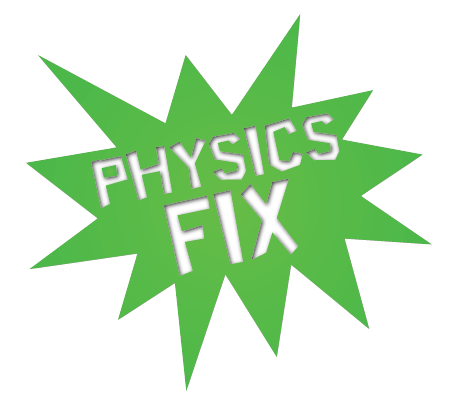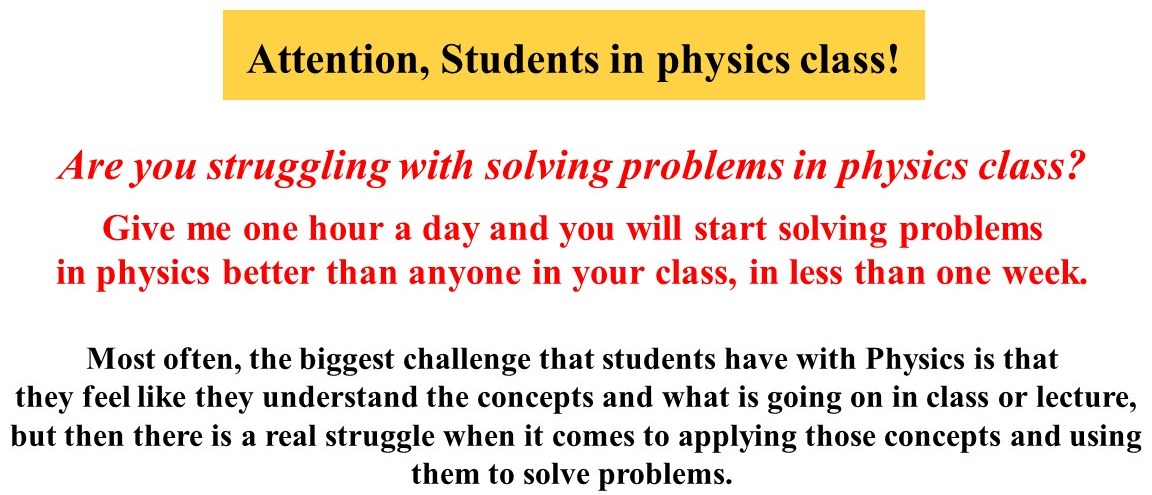Dear students,
Learning and doing of Physics is more than just the theories. We understand and firmly believe that knowing about Physics isn’t just enough to help one apply it and be able to use it. For this reason, we have, instead of focusing on teaching you the theories first, changed things up a bit. We will solve problems TOGETHER in order to fully demonstrate and better explain the fundamentals of Physics.
The biggest setback is being able to read a problem, identify what the problem is asking you to solve for, what information is given to you, and HOW YOU CAN USE WHAT IS GIVEN TO SOLVE FOR THE CORRECT ANSWER.
Every problem is set up to help you achieve this. You will see the full problem, we will then break the problem down and explain what each part means. Hopefully, with enough practice, you too will be able to do this on your own. From there, we will systematically use all of the information that the problem has given us, and step by step solve for our answer.
When broken down, Physics really isn’t as bad as you may think. In all honesty, you need nothing but the most basic of Algebra skills to solve even the most complicated of problems.
How do I know?
I obtained my bachelor’s degree in pedagogical physics (1989) and acquired my master’s degree in geophysics (1994).
Since 1989, I have taught physics to many students in private and public high schools and colleges. I taught Physics I and II including mechanics, electricity, magnetism, optics, and thermodynamics.
During all the years of my teaching career, I have seen many students struggling with solving physics problems. They learn about the theories in their classes, but have difficulty applying those concepts and principles to solve the problems.
I help students improve their skills to solve physics problems with a different approach that teaches them problem solving and critical thinking through working out problems with descriptive step by step solutions. Using this method, students will be given a full problem which they will learn how to break down. Along with this there is an explanation for what each part of the problem means. From there, we will systematically use all of the information that the problem has given us, and solve for the answer step by step. What we need to solve any of these Physics problems is the most basic of Algebra skills, even to solve the most complicated of the problems.
Hopefully with enough practice, you too will be able to do this on your own.
Disclaimer; You will receive a digital product and the image here is for visualization only.
What will you get in this course?
This course will include over 150 animated powerpoint presentations about;
-
Scalar and Vector Quantity
- Define different quantities in physics
- How to add and subtract vectors
- Determine the components of a vector
- Apply what we learned to solve problems
See an example here.
-
Linear Motion
- Linear (one dimension) motion with constant or average velocity and speed
- Linear motion with constant or average acceleration
- One object moving along straight path
- One object moving in two intervals with different directions
- Two objects moving in the same direction
- Two objects moving in opposite direction
- Free fall motion
- AND MORE
See an example here.
-
Projectile and Relative Motion
- Two dimension kinematics equations
- Projectile motion
- Relative velocity
- Relative motion of two or more objects
- AND MORE
See an example here.
-
Law of Motion
- Force
- Newton’s laws and their application
- Mass
- Free body diagram
- Normal force
- Friction
- Tension
- Atwood Machine
- Equilibrium state
- AND MORE
See an example here.
-
Circular Motion (Rotation)
- Circular motion (rotation)
- Uniform circular motion
- Period of the motion
- Centripetal acceleration
- Centripetal force
- Motion on unbanked curve
- Motion on banked track
- Angular velocity
- Angular acceleration
- AND MORE
See an example here.
-
Gravitational Force
- Concept and definition of gravitation
- Rule of gravitational force
- Calculate the mass of Earth (or any other planet) using gravitational force
- Calculate gravitational acceleration (gravity) on a planet
- Calculate centripetal acceleration and linear velocity for an object rotating around another mass
- Rotation frequency and period for a planet
- Equilibrium state and position
- AND MORE
See an example here.
-
Work and Energy
- Work done by a constant force
- Work-energy theorem
- Gravitational potential energy
- Conservation of mechanical energy
- Hook’s law
- Elastic potential energy of a spring
- Power
- AND MORE
See an example here.
-
Momentum and Collisions
- Linear momentum
- Impulse
- Conservation of momentum
- Perfect elastic collisions
- Inelastic collision
- Perfect inelastic collision
- Ballistic pendulum
- AND MORE
See an example here.
-
Rotational Equilibrium and Dynamics
- Torque
- The center of gravity
- Equilibrium conditions for rigid systems
- Torque and angular acceleration
- Moment of inertia
- Rotational kinetic energy
- Angular momentum
- Principle of conservation of angular momentum
- AND MORE
See an example here.

Disclaimer; You will receive a digital product and the image here is for visualization only.
Why do you need this course?
Using this course you will;
- Solve physics problems with very basic algebra and trigonometry knowledge
- Learn with your own pace
- Learn anytime you feel you want to
- Think about solutions in each step before proceeding to the next step
- Repeat a step over and over
- Learn to break down problems to acquire key points and clues
- Define given and ungiven quantities fast
- Fully understand objectives in each step
- Learn necessary theory during solving problems
- Practice to solve problems systemically
- Find the final solution piece by piece
- Improve your skills fast to solve physics problems
- Learn more than what you learn in several sessions with private tutors
We are so excited to have you with us, and we hope that our method is the spark to your success in your Physics course.

Disclaimer; You will receive a digital product and the image here is for visualization only.

ClickBank is the retailer of products on this site. CLICKBANK® is a registered trademark of Click Sales, Inc., a Delaware corporation located at 1444 S. Entertainment Ave., Suite 410 Boise, ID 83709, USA and used by permission. ClickBank’s role as retailer does not constitute an endorsement, approval or review of these products or any claim, statement or opinion used in promotion of these products.




